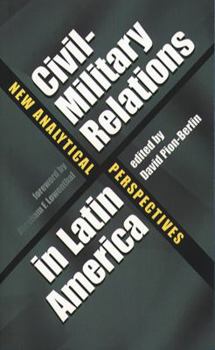Civil-Military Relations in Latin America: New Analytical Perspectives
Select Format
Select Condition 
Book Overview
The armed forces may no longer rule nations throughout Latin America, but they continue to influence democratic governments across the region. In nine original, thought-provoking essays, this book offers fresh theoretical insights into the dilemmas facing Latin American politicians as they struggle to gain full control over their military institutions.
Latin America has changed in profound ways since the end of the Cold War, the re-emergence of democracy, and the ascendancy of free-market economies and trade blocs. The contributors to this volume recognize the necessity of finding intellectual approaches that speak to these transformations. They utilize a wide range of contemporary models to analyze recent political and economic reform in nations throughout Latin America, presenting case studies on Argentina, Brazil, Chile, Ecuador, El Salvador, Honduras, and Venezuela. Bridging the gap between Latin American studies and political science, these essays not only explore the forces that shape civil-military relations in Latin America but also address larger questions of political development and democratization in the region.
The contributors are Felipe Ag ero, J. Samuel Fitch, Wendy Hunter, Ernesto L pez, Brian Loveman, David R. Mares, Deborah L. Norden, David Pion-Berlin, and Harold A. Trinkunas.
Latin American Studies/Political Science
Related Subjects
Americas Central America Commentary & Opinion Comparative Politics Democracy Government History Ideologies & Doctrines Latin America Legal Theory & Systems Non-US Legal Systems Political History Political Ideologies Political Science Politics & Government Politics & Social Sciences Social Science Social Sciences Sociology




